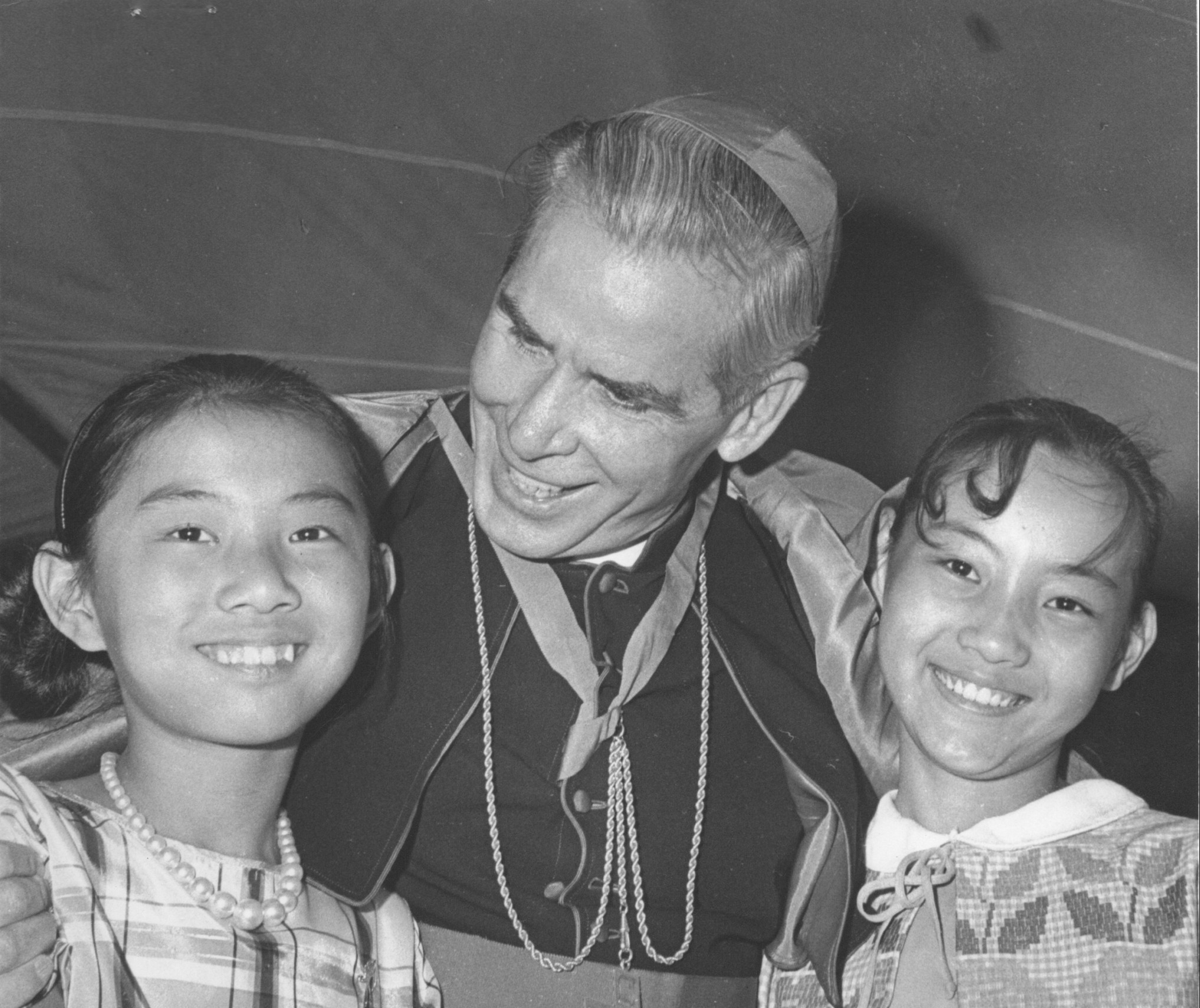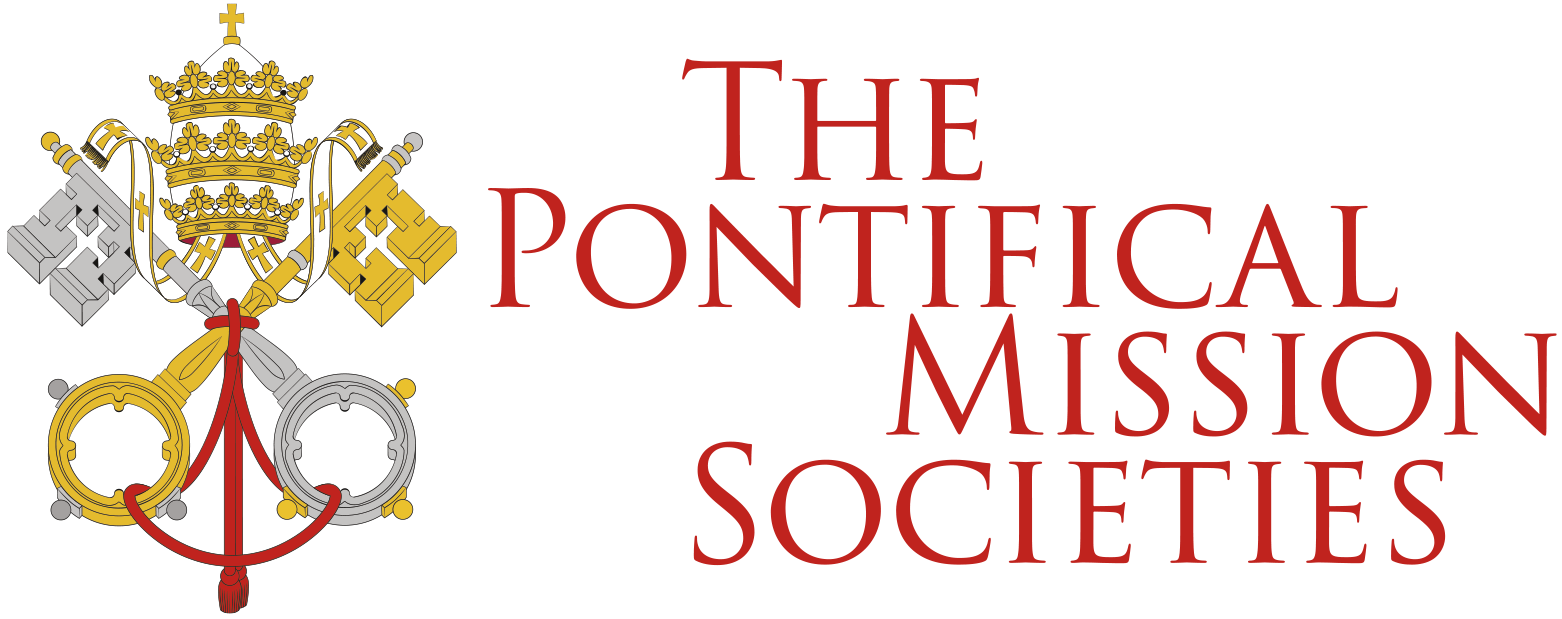
While it has been more than fifty years since Archbishop Fulton J. Sheen was National Director of the Society of the Propagation of the Faith in the United States, his legacy still looms large as we continue to support the work of the Church in the missions so that Christ may truly become known to all the peoples of the earth. For the sixteen years (1950-1966) that Sheen held this role, he spoke and traveled tirelessly and extensively to promote the work, but amazingly he did not limit himself only to this cause but also continued to lecture widely on a wide variety of topics, as well as to function pastorally and sacramentally at a dizzying pace.
To understand the apostolic zeal and indefatigable energy that propelled him as priest, bishop, writer, and advocate for the missions, it would be helpful to understand better Fulton Sheen the man. With this as our aim, let us first explore his childhood, family, and the early influences that came to shape him. Born on May 8, 1895, to Newton (Newt) Sheen and Delia Fulton in the apartment above their hardware store in the small town of El Paso, Illinois (40 miles east of Peoria), the couple’s first of four sons was baptized Peter. Sadly, the Sheen hardware store and many other nearby businesses were all burned down by an accidental fire that spread quickly. After moving for a time to a farm Newt inherited from his father, when Peter was five and a half the family settled in Peoria so that Peter could attend St. Mary’s parochial school. It was at the time of his enrollment here that he began using Fulton (his mother’s maiden name) instead of Peter as his first name.
Once settled into their new home, the Sheen family continued to expand with the last of Fulton’s brothers born in 1908. Newt and Delia raised their sons in a devoutly Catholic home: sacred images decorated the walls, and the family prayed the rosary daily. Always greatly devoted to the Blessed Virgin Mary, Sheen credits much of this to his mother who after his baptism placed him on a Marian altar consecrating her infant son to the Mother of God.
At the age of eight, Sheen began serving Mass at St. Mary’s Cathedral where his family worshipped each Sunday. Despite his tender age, the young Fulton was often assigned to assist Bishop John Lancaster Spalding, the founding bishop of the Diocese of Peoria, who was also one of the most significant prelates in late nineteenth and early twentieth- century American Catholicism. Spalding once shared two startling predictions with the small boy: first, the bishop said he would one day study at Louvain in Belgium as he himself did; and second, Sheen would also one day become a bishop. We now know he was right on both accounts.
In 1909, after being confirmed as John at St. Mary’s, Fulton Sheen progressed to Spalding Institute, a high school run by the Brothers of Mary and named after the bishop’s brother. Known for his neat attire and academic prowess, Fulton stayed with an uncle during school terms after his family moved to a farm outside Peoria. There, the Sheens endured basic living without electricity or plumbing. Although Fulton was a compliant son, he later confessed his aversion to farm life, humorously noting that his seminary pursuit was partly to avoid such a future. Like Fulton, his brothers also eschewed farming, much to their father’s disappointment.
Fulton Sheen graduated as valedictorian from a class of seven in 1913, with his commencement speech still remembered by a classmate four decades later. He pursued higher education at St. Viator’s College in Bourbonnais, Illinois, a Viatorian Fathers founded institution since 1868 that catered to boys from age 12 and included high school to seminary levels. Initially critiqued for poor public speaking, Sheen honed his oratory and debate skills with rigorous practice and priestly guidance, becoming a masterful speaker by his 1917 graduation. He also engaged in drama and writing, contributing articles to the campus magazine. These activities laid the groundwork for his eventual rise to national prominence. Throughout college, he spent summers working on the family farm, but his path led elsewhere. In September 1917, at twenty-two, Sheen began his seminary studies for the Diocese of Peoria at St. Paul Seminary in Minnesota.
To be continued… (In the next part of this series, we will look at Sheen’s seminary training, ordination, and graduate studies in Europe).
Like many of our donors today, Venerable Fulton Sheen’s commitment to the missions sprung from a sincere passion for helping the world’s poor.
As National Director of the Pontifical Mission Societies from 1950 to 1966, he raised more money for the poor than any other American Catholic. This effort includes the donation of more than $10 million of his personal earnings.
Today, the Venerable Fulton Sheen Legacy Society is comprised of individuals who, like Fulton Sheen, share a passion for the missions, a love for our Catholic faith, and a commitment to ensuring that missionaries around the world are supported in their efforts to proclaim the Gospel and provide food, education, and medical care to vulnerable communities.
By supporting The Pontifical Mission Societies through your estate, as a beneficiary of your retirement fund, or through a life income gift, you become a valued honoree of his Legacy Society.
In today’s world, gifts like Fulton Sheen’s are indeed rare. But you, too, can create a legacy of faith and hope by joining this special family of supporters. Simply notify The Pontifical Mission Societies that you have included us in your estate planning.
If you have already made a provision for The Pontifical Mission Societies or the Society for the Propagation of the Faith in your estate plan, we thank you! Please contact us and share your commitment so we may welcome you as a member and express our gratitude for your generosity.



